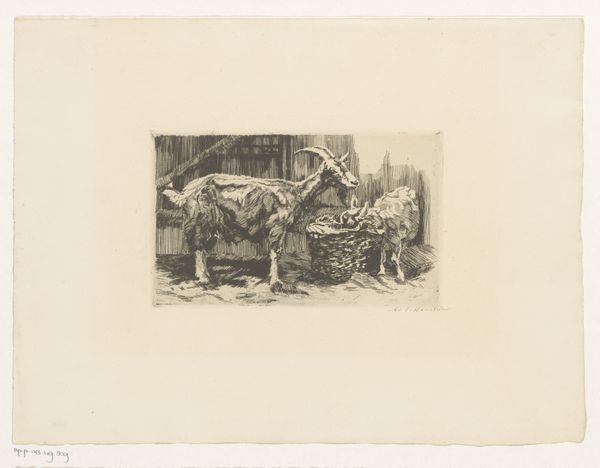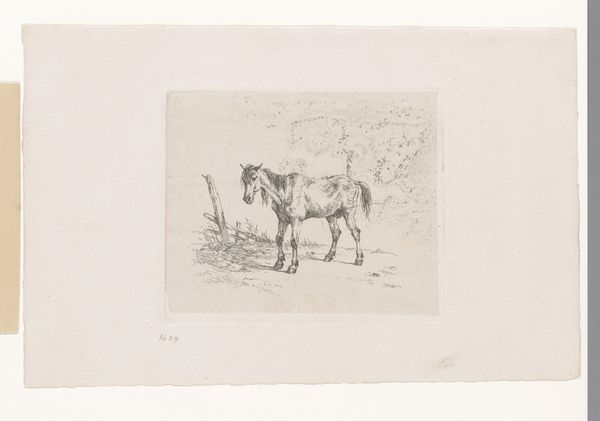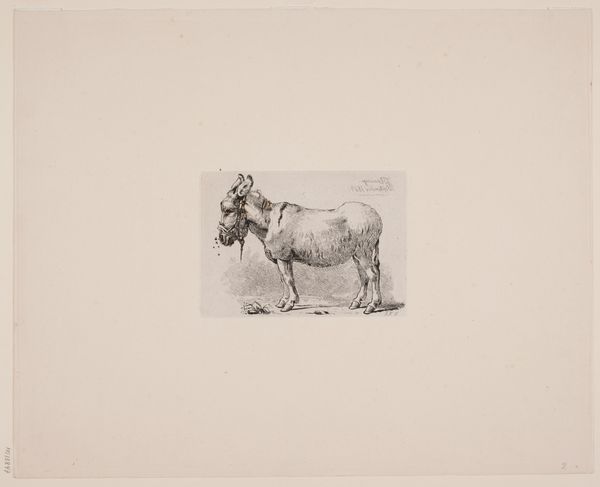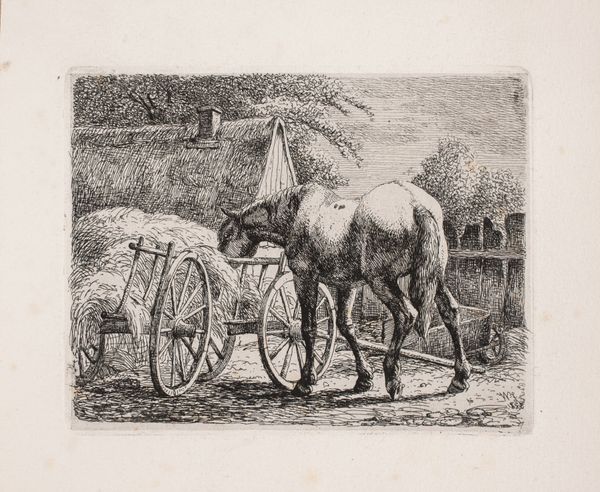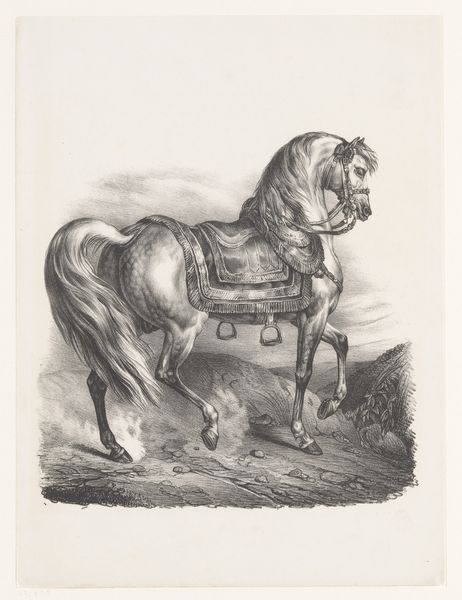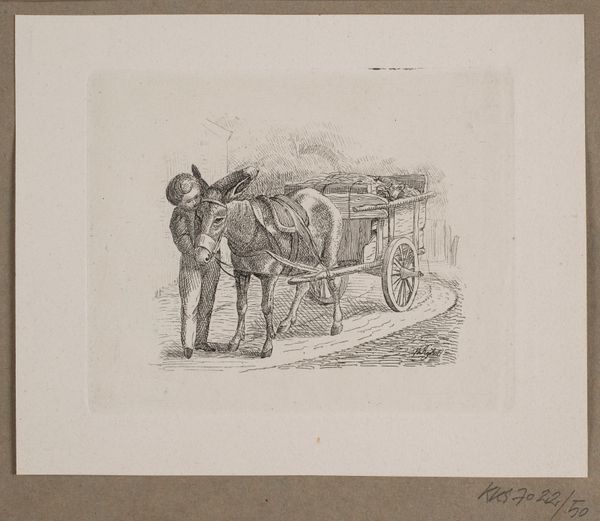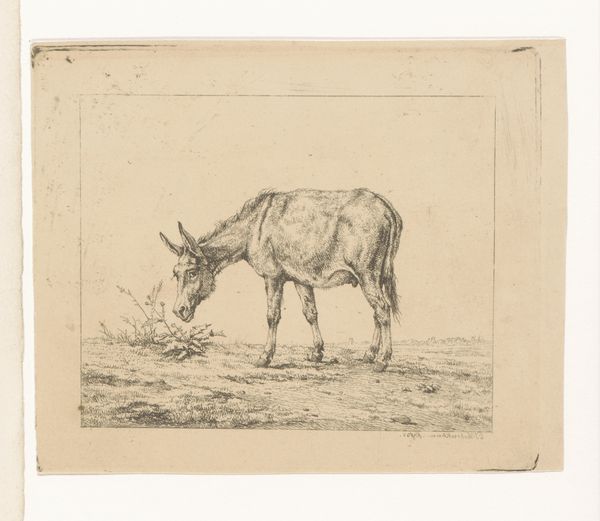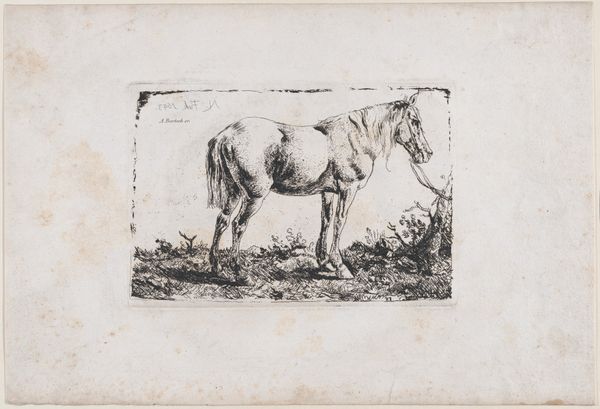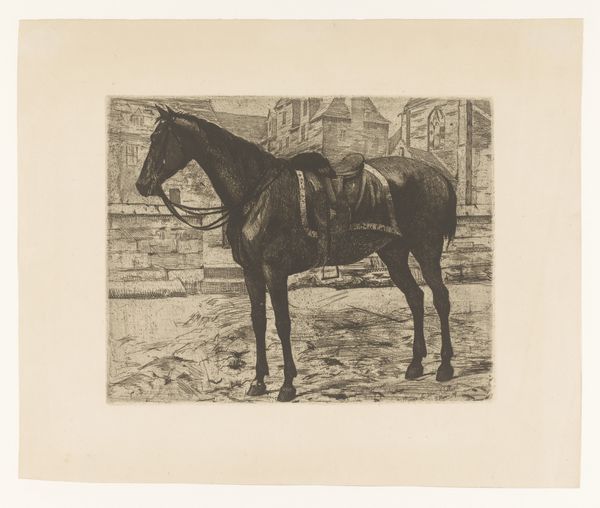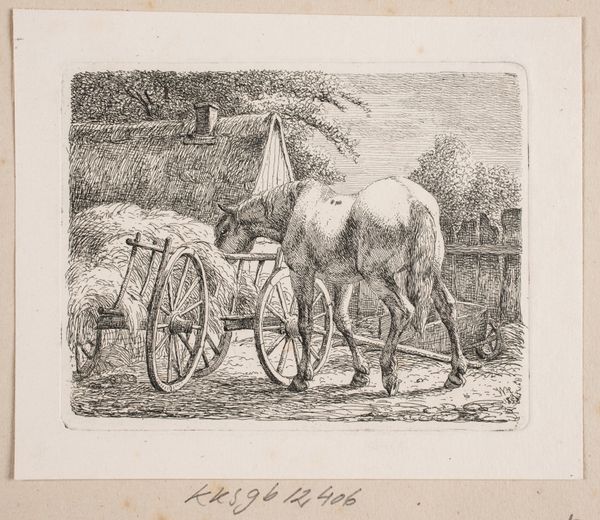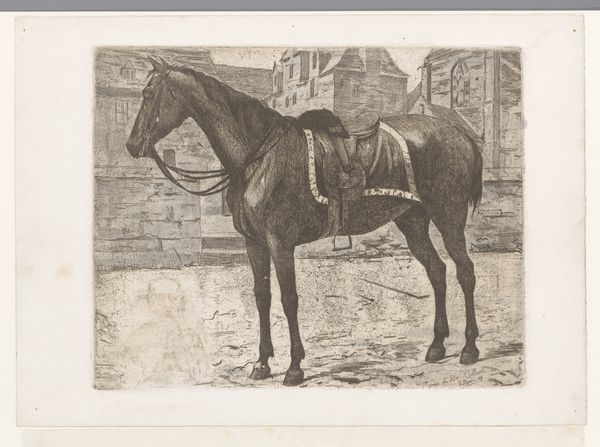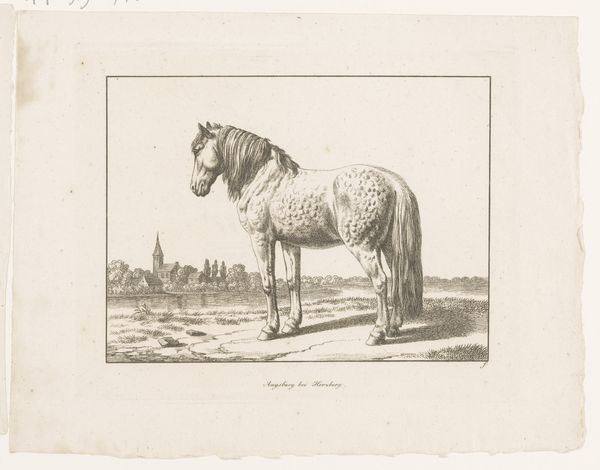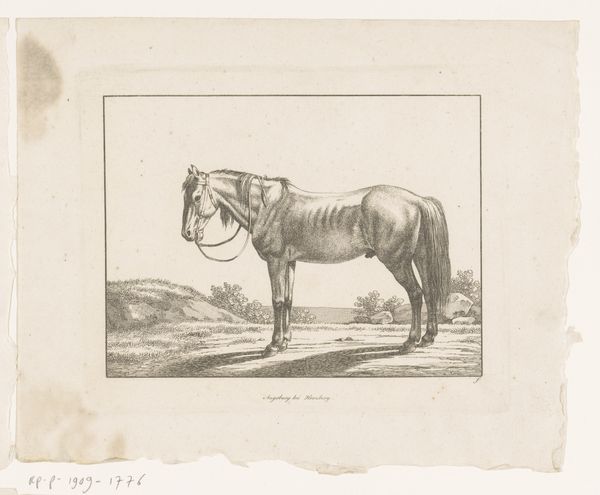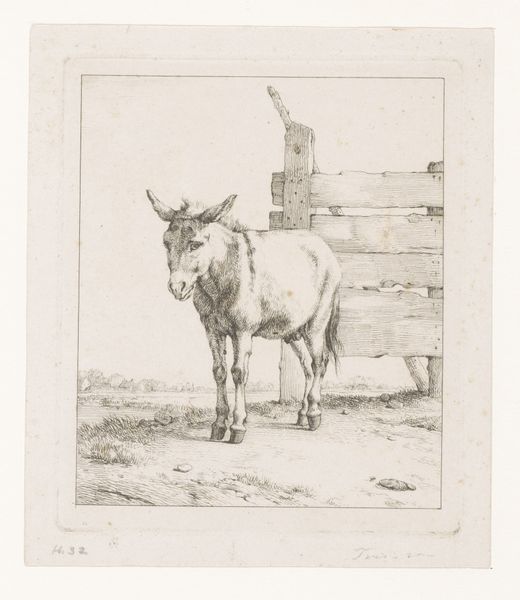
drawing, print, engraving
#
drawing
# print
#
landscape
#
horse
#
engraving
#
realism
Dimensions: height 482 mm, width 620 mm
Copyright: Rijks Museum: Open Domain
Eugène Verboeckhoven made this print of a saddled horse in the Netherlands sometime in the first three-quarters of the 19th century. It depicts a working animal that would have been a familiar sight at the time. Horses played a crucial role in the 19th-century Dutch economy, and were essential for agriculture, transportation, and even military activities. So how was that social reality reflected in art? Well, there was a rise in specialization among artists. Some, like Verboeckhoven, focused almost entirely on animal portraiture to serve a market of wealthy landowners and breeders. Prints like this one would have circulated among the upper classes, helping to promote particular breeds and the idea of the rural idyll. To better understand this image, we can explore the period's agricultural practices and the breeding standards that were being promoted at the time in journals and through agricultural societies. That kind of research reveals the social values that underpinned even the most seemingly straightforward depictions of animals.
Comments
No comments
Be the first to comment and join the conversation on the ultimate creative platform.
